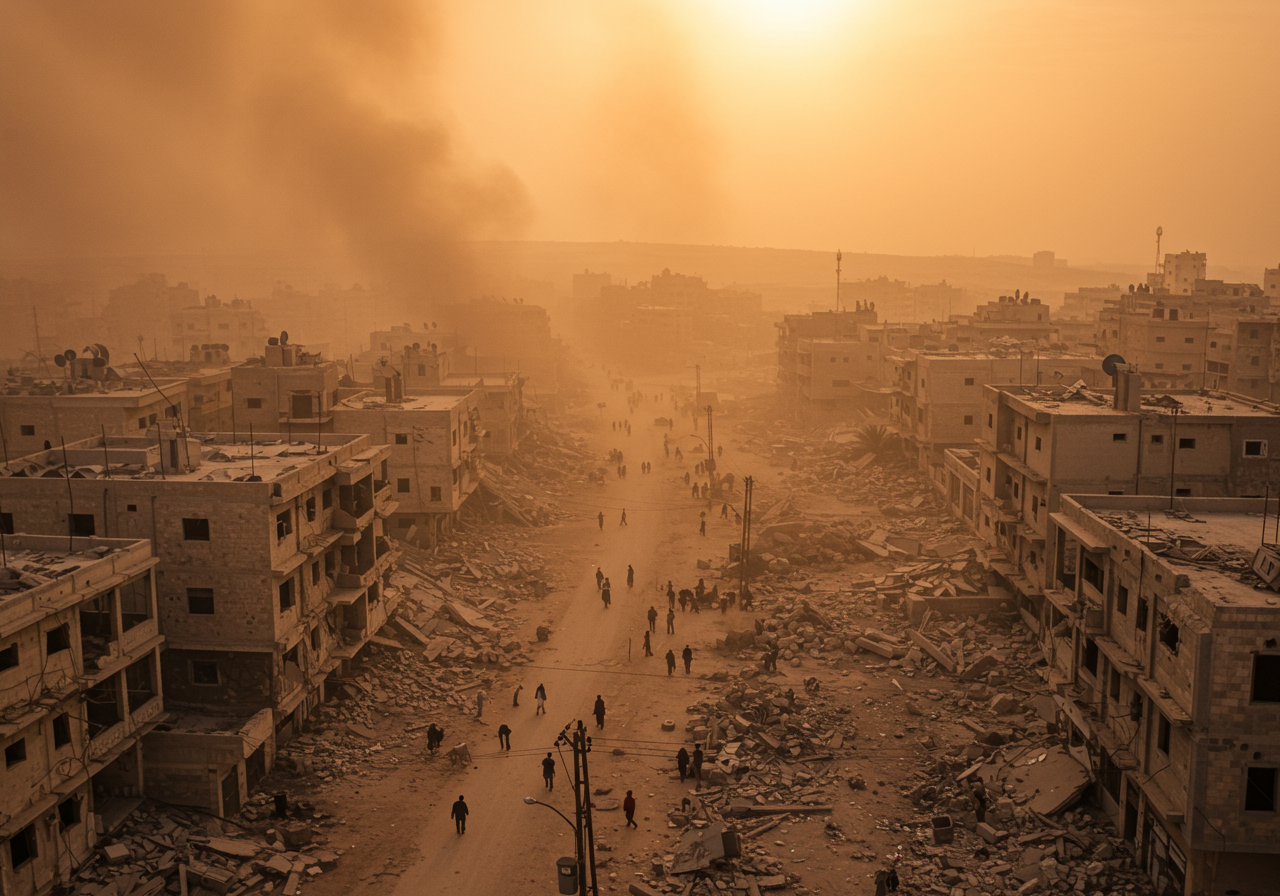By Kristina Vankova
In a chilling scenario that seems ripped from the pages of a dystopian science fiction novel, the humanitarian crisis in Gaza continues to unravel, leaving behind a trail of chaos and destruction. The escalating situation is vividly compared to a post-apocalyptic landscape, where the daily lives of the inhabitants are marred by uncertainty and turmoil.
Overcrowding, deteriorating living conditions, and an ever-deepening humanitarian crisis have turned Gaza into a grim theater of escalating desperation. With limited access to essential services and a political impasse that shows no signs of resolution, the situation on the ground grows increasingly dire.
The Humanitarian Nightmare
Experts and humanitarian workers describe the conditions in Gaza as nothing short of catastrophic. The blockade imposed on the region has created immense obstacles in the distribution of critical aid. Essential supplies such as food, water, and medical equipment are scarcely available, exacerbating the already dire conditions faced by residents.
As infrastructures continue to collapse under pressure, health services are stretched to breaking point. Hospitals lack the necessary medicines and equipment to attend to the swelling number of patients, many of whom are casualties of the ongoing conflict. With electricity only sporadically available and clean water increasingly scarce, the humanitarian crisis is deepening with each passing day.
Enduring Chaos and Fear
The atmosphere in Gaza is pervaded by a sense of fear and uncertainty. Families are forced to navigate their lives amidst ongoing airstrikes and military operations, which frequently target residential areas. This environment of chaos imposes a heavy toll on the mental health of inhabitants, particularly the children, who bear the brunt of witnessing violence and destruction.
Daily life is fraught with challenges. Basic necessities that are taken for granted elsewhere鈥攕uch as education, healthcare, and employment鈥攁re either severely limited or completely absent. This not only hampers the economic prospects of the region but also raises concerns about the future generation who are increasingly losing hope in obtaining a peaceful existence.
International Response and Aid Efforts
The international community has expressed deep concern over the conditions in Gaza. Various nations and organizations have called for immediate intervention to address the humanitarian needs of the population. However, the ongoing political stalemate and complex geopolitical dynamics undermine efforts to deliver effective and sustained aid to the region.
While humanitarian aid trickles in, it is often insufficient to meet the overwhelming needs of the population. Aid workers face numerous challenges as they try to reach affected communities, often risking their lives in the process. The safety of these workers is a significant concern, as they navigate through regions fraught with conflict and instability.
Voices from the Ground
Voices from the ground paint a grim picture of daily existence in Gaza. Residents describe feelings of abandonment and isolation, as the world seems to turn a blind eye to their plight. Personal stories highlight the sheer resilience and endurance of a population struggling to survive against all odds.
For many, the outside world remains their only beacon of hope. Appeals for international solidarity and support are echoed by those who have become inadvertent victims of a conflict not of their choosing. The resilience of the people stands as a testament to their determination to persevere, yet there is a palpable sense that time is running out.
Challenges to Peace and Stability
The road to peace and stability in Gaza is fraught with numerous challenges. Political solutions remain elusive, as longstanding grievances and hostilities continue to hamper negotiations. Efforts to mediate and foster dialogue between conflicting parties have met with limited success, often stalling at critical junctures.
Resuming peace talks and achieving a long-term resolution remains a priority for those committed to ending the suffering in Gaza. International diplomatic efforts must prioritize dialogue and cooperation, recognizing that peace will only be sustainable through inclusive and just solutions that address the root causes of the conflict.
A Call for Action
The situation in Gaza demands urgent attention and action. As conditions worsen, it is imperative for the international community to step up efforts to alleviate the suffering of those affected. This includes increased humanitarian aid, concerted diplomatic initiatives to end hostilities, and the establishment of sustainable mechanisms for peace and reconstruction.
Gaza鈥檚 plight must not be forgotten or ignored. It calls for an unwavering commitment to humanitarian principles and international law, ensuring that all efforts are directed towards improving the lives of those trapped in an unfolding catastrophe. These efforts are not only a moral obligation but also a necessity for promoting long-term peace and security in the region.
In conclusion, the current situation in Gaza is a stark reminder of the urgent need for compassionate and decisive action. As the world watches, it is crucial to translate concern into tangible support, fostering hope for a future where peace and prosperity replace chaos and despair.
